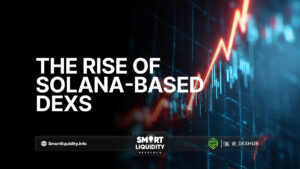The Role of DEXs in Financial Inclusion


In recent years, Decentralized Exchanges (DEXs) have become pivotal players in the world of finance. These platforms allow users to trade cryptocurrencies directly with each other without the need for intermediaries like banks. DEXs are transforming cryptocurrency trading and playing a crucial role in advancing financial inclusion worldwide.
Democratizing Access to Financial Services
One of the primary ways DEXs contribute to financial inclusion is by providing unbanked or underbanked individuals with access to financial services. According to the World Bank, nearly 1.7 billion people globally do not have access to traditional banking services. DEXs, by their very nature, do not require users to open bank accounts or undergo KYC (Know Your Customer) procedures, which often serve as barriers to entry. This enables individuals from remote areas or regions with limited banking infrastructure to access financial services.
Lower Costs and Barriers
Another important factor is the lower cost structure that DEXs offer. Traditional financial systems often involve various fees, including transaction fees, account maintenance fees, and charges for currency conversion. In contrast, DEXs typically have lower transaction costs, which makes trading and accessing financial services more affordable for a wider audience. Furthermore, DEXs allow access from any internet-enabled device, removing geographical limitations and giving people worldwide the opportunity to participate in the global financial system.
Increasing Financial Sovereignty
DEXs also enhance financial sovereignty. By providing individuals with control over their private keys and assets, users do not need to trust a third party, such as a bank or financial institution, with their funds. This sense of empowerment is essential, particularly in regions where financial institutions may be perceived as unreliable or corrupt.
The Road Ahead
As technology advances and DEXs continue to evolve, their potential to foster financial inclusion grows. However, challenges remain, including scalability issues and regulatory uncertainty. Despite these challenges, DEXs remain a vital tool for fostering an inclusive financial ecosystem, ensuring global access for all.
DISCLAIMER:
“The information provided on this platform is for general informational purposes only. All information on the platform is provided in good faith; however, we make no representation or warranty of any kind, express or implied, regarding the accuracy, adequacy, validity, reliability, availability, or completeness of any information on the platform.”




